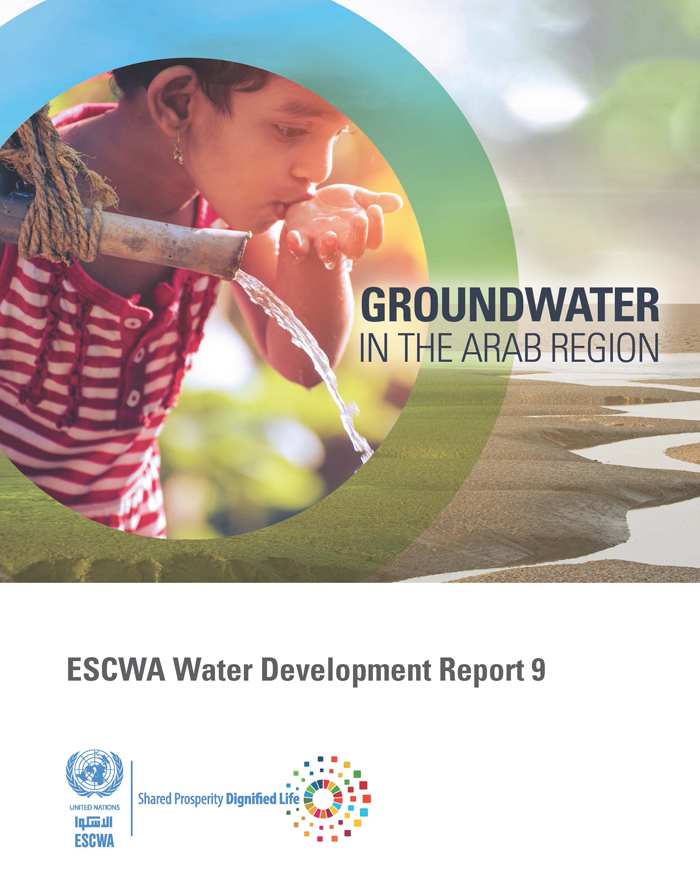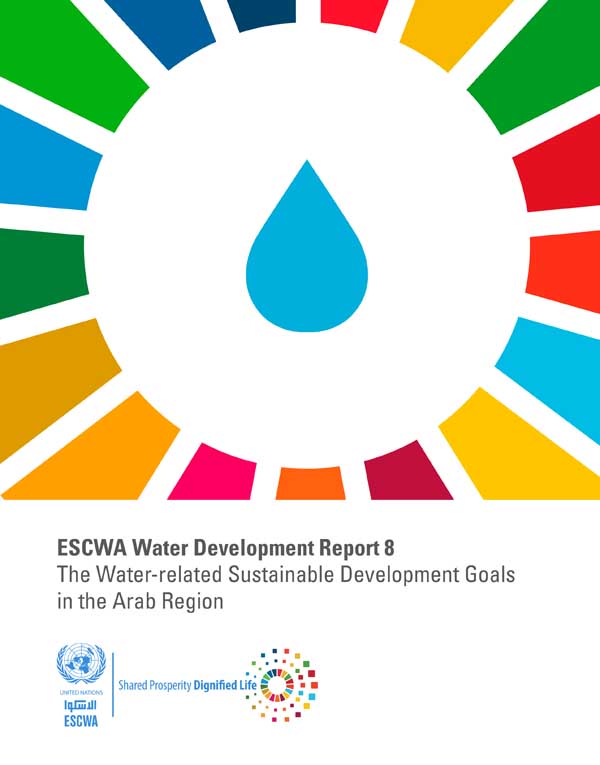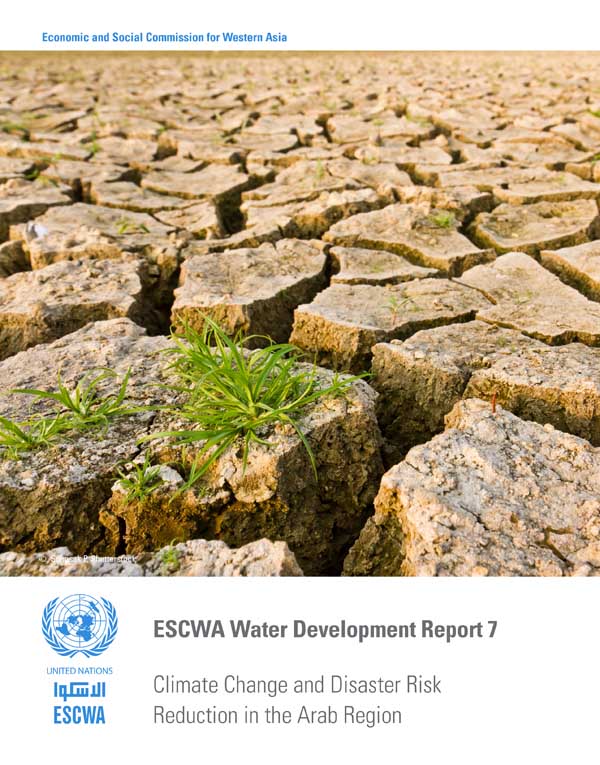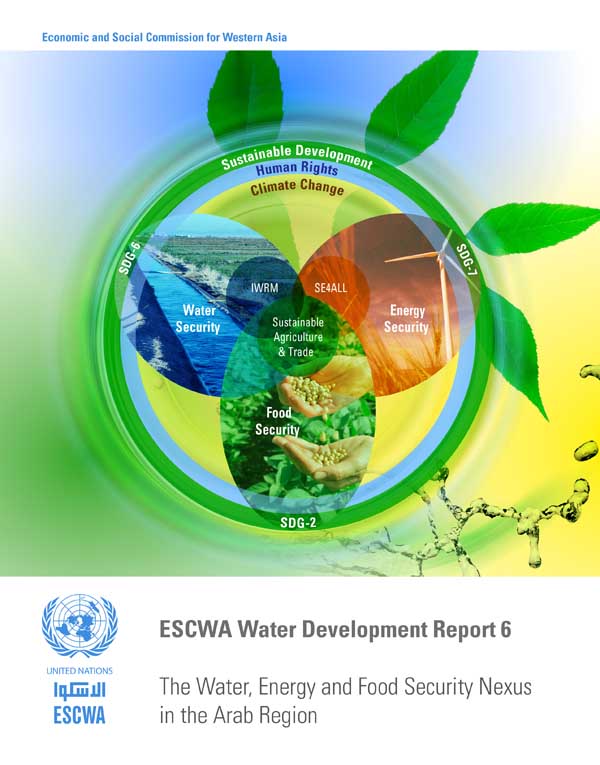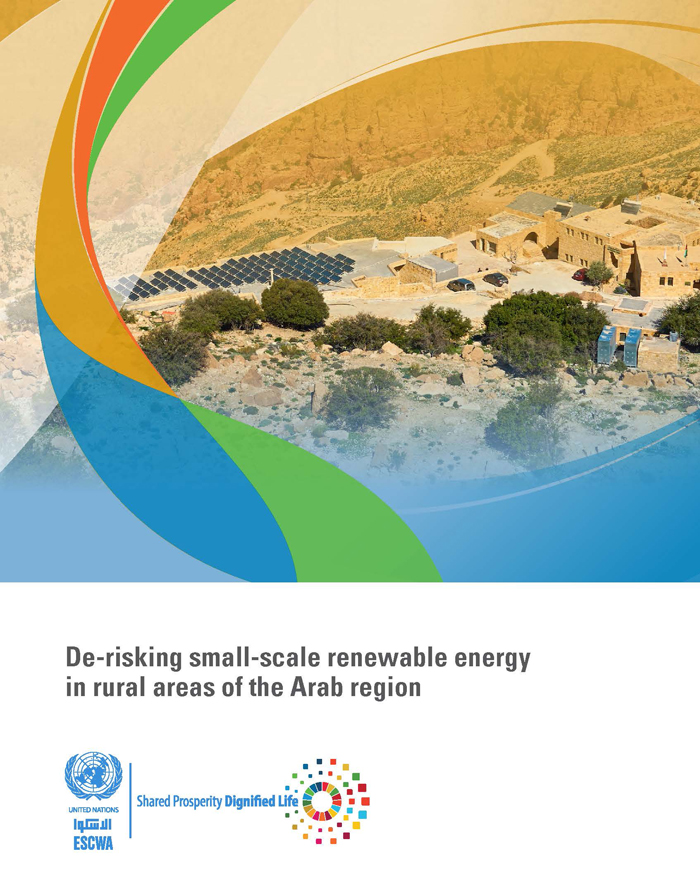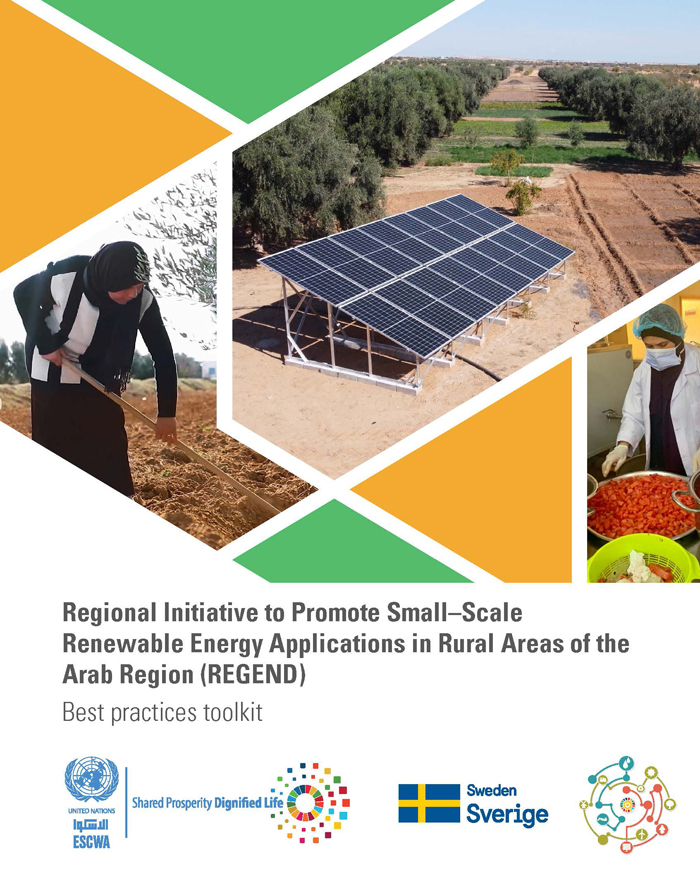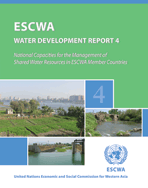
ESCWA Publication: E/ESCWA/SDPD/2011/4
Country: Kingdom of Bahrain, Republic of Iraq, Hashemite Kingdom of Jordan, State of Kuwait, Lebanese Republic, State of Palestine, State of Qatar, Kingdom of Saudi Arabia, Republic of Sudan, United Arab Emirates, Republic of Yemen
Publication Type: Reports & studies
Publication Subject: ESCWA Water Development Report
Cluster: 2030 Agenda and SDG Coordination
Focus Area: Climate change, Financing for development, Natural resource sustainability
Initiatives: RICCAR
SDGs: Goal 6: Clean Water and Sanitation, Goal 14: Life Below Water
Keywords: Arab countries, Climate change, Economic development, Energy resources, Food security, Shared water resources, Water resources development, Water rights, Aquifers, Groundwater, Renewable resources, Water management, Water policy
ESCWA Water Development Report 4: National Capacities for the Management of Shared Water Resources in ESCWA Member Countries
January 2011
Specific attention is paid to the legal frameworks for shared water resources management and the ways in which legal instruments and agreements can support integrated water resources management in shared river basins and shared aquifers. Analysis is also provided on the state of shared water resources management in the region, including current drivers, pressures, constraints and challenges facing shared water resources in the ESCWA region related to water security, water scarcity, food security, climate change, as well as water and energy linkages. The report provides a holistic view on shared water resources in the ESCWA region that takes into account the current challenges facing countries of the region, and reflects them into the recent regional institutional and legal development in order to identify the gaps and clarify the prospects for sustained cooperation on shared water resources. While in principle the report focuses primarily on ESCWA member countries, given that the ESCWA region is encompassed within the larger Arab region and considering the new institutional and legal developments that have or are taking place within the broader regional context, the scope of some elements of the report have been expanded to cover the entire Arab region.
Related content
Climate change
, Financing for development
, Natural resource sustainability
,
Specific attention is paid to the legal frameworks for shared water resources management and the ways in which legal instruments and agreements can support integrated water resources management in shared river basins and shared aquifers. Analysis is also provided on the state of shared water resources management in the region, including current drivers, pressures, constraints and challenges facing shared water resources in the ESCWA region related to water security, water scarcity, food security, climate change, as well as water and energy linkages. The report provides a holistic view on shared water resources in the ESCWA region that takes into account the current challenges facing countries of the region, and reflects them into the recent regional institutional and legal development in order to identify the gaps and clarify the prospects for sustained cooperation on shared water resources. While in principle the report focuses primarily on ESCWA member countries, given that the ESCWA region is encompassed within the larger Arab region and considering the new institutional and legal developments that have or are taking place within the broader regional context, the scope of some elements of the report have been expanded to cover the entire Arab region.
